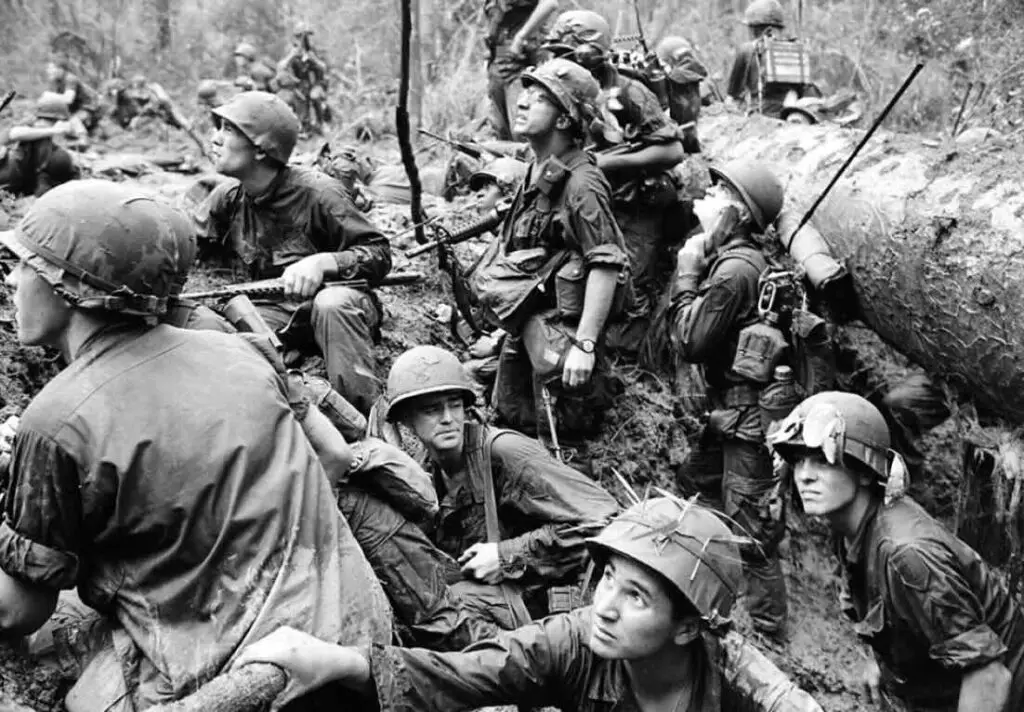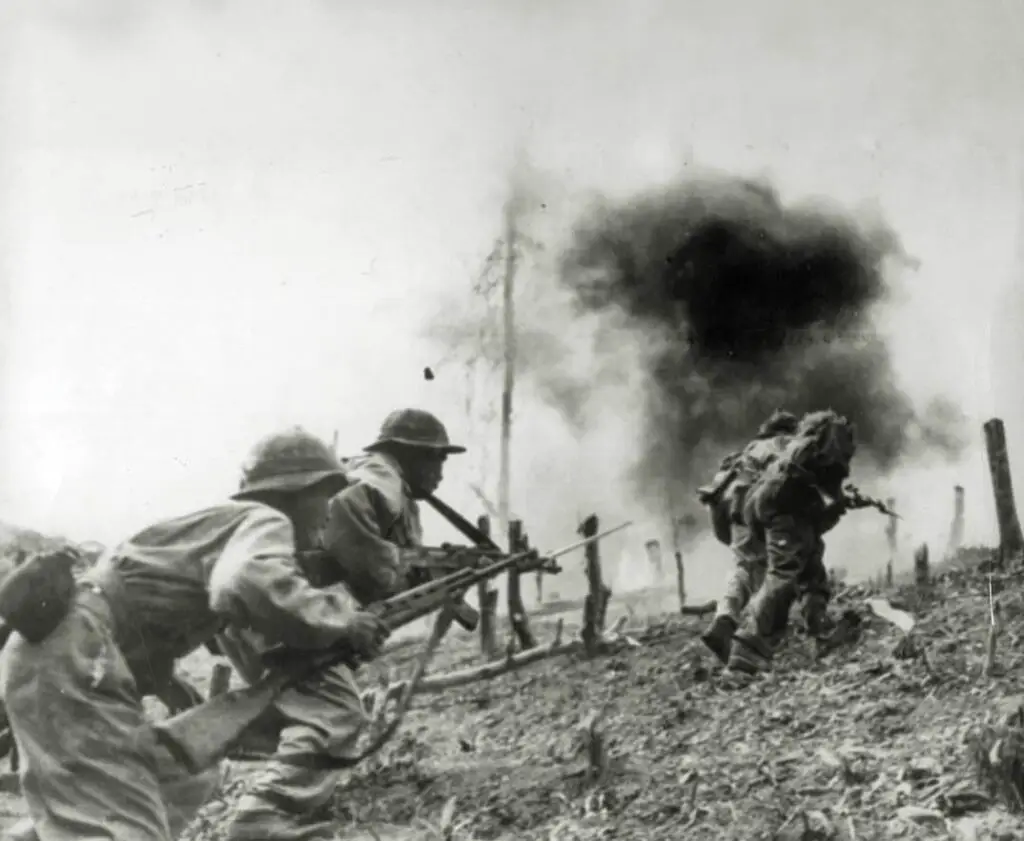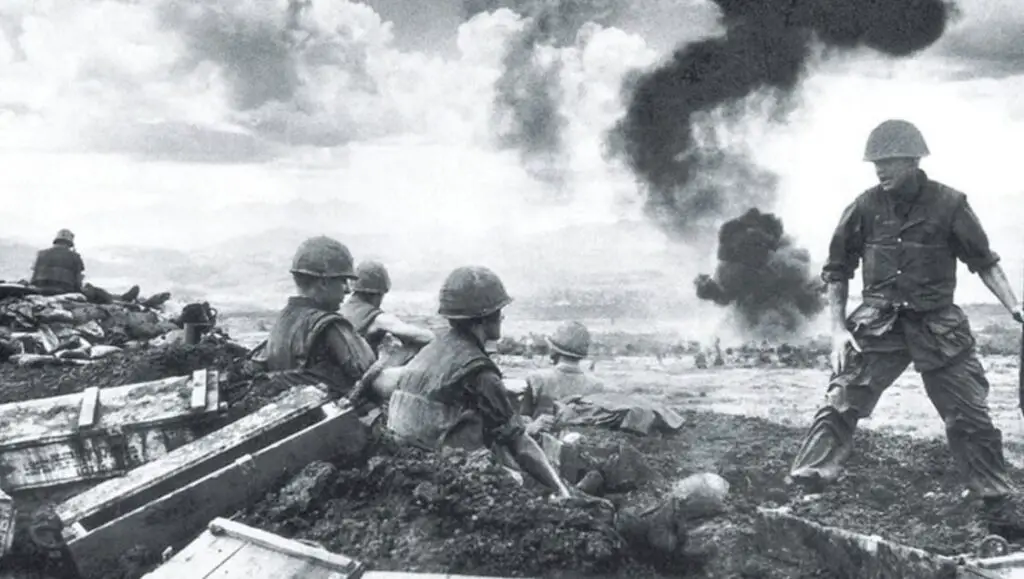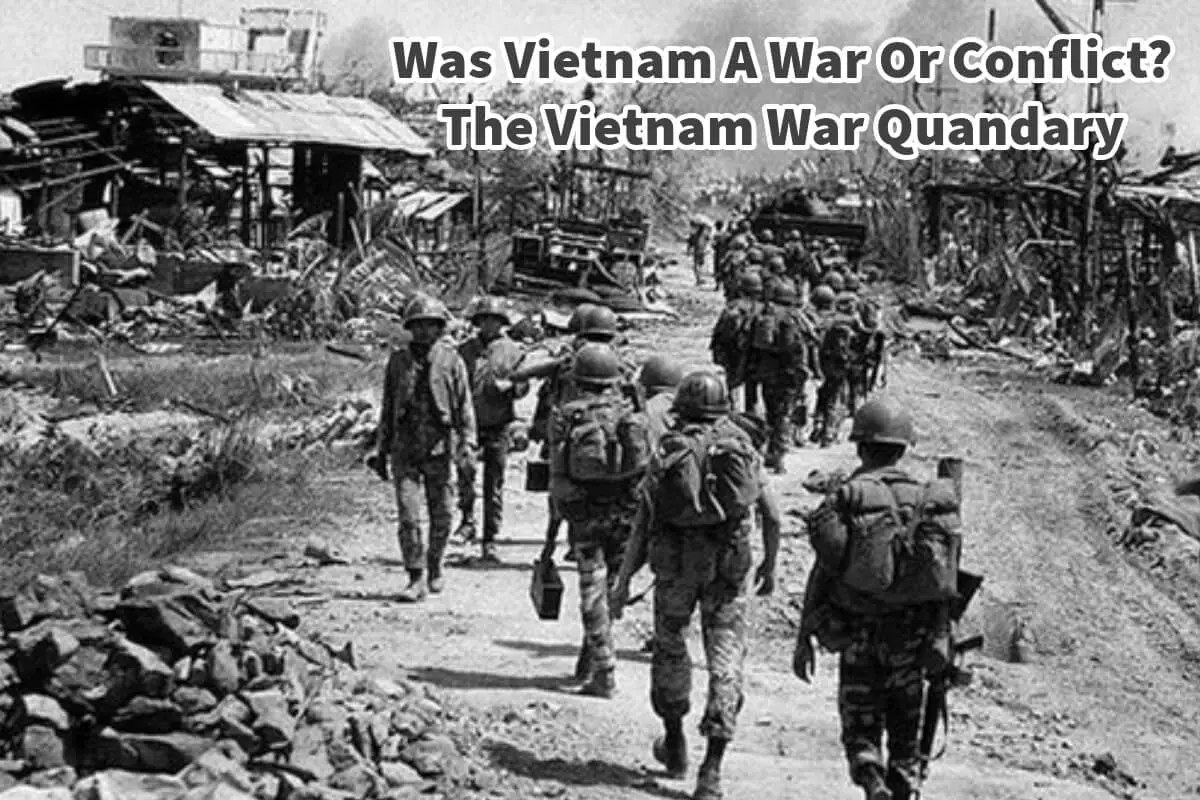Having resided and worked within Vietnam over numerous years, I’ve garnered substantial insight into the period commonly referred to as the Vietnam War, though technically termed the Vietnam Conflict. This era, which unfolded from November 1, 1955, to April 30, 1975, is etched as a period of intense and divisive conflict in the annals of both American and Vietnamese history.
The term “Vietnam War” has become embedded in the collective memory, shaping perceptions through its historical and cultural significance. However, a closer inspection through the prism of U.S. constitutional law reveals that this extended engagement is classified not as a war but rather as a conflict. This technical designation reflects the complex nature of American military engagements and the intricate legal frameworks that define them.
Table of Contents
- The Vietnam War Quandary: War Or Conflict?
- Reflecting On The Terminology Of The Vietnam Conflict
- Related Questions
The Vietnam War Quandary: War Or Conflict?
The Vietnam conflict, stretching from November 1, 1955, to April 30, 1975, represents one of the most tumultuous and contentious periods in both American and Vietnamese histories. The pervasive use of the term “Vietnam War” ingrains it deeply in the psyche of history and popular culture. Yet, when examined through the constitutional lens of the United States, this prolonged struggle assumes the technical jargon of a “conflict.”
This dichotomy between the vernacular and the legalistic description prompts an examination not merely of terminology but also of the broader implications that the distinction entails. Read on as we explore, from various perspectives, whether the events in Vietnam constitute a war or a conflict, unraveling the nuances that each term encompasses.
Historical Context Of The Vietnam Conflict
The Vietnam situation has been characterized by decades of combat, with significant involvement from global powers, marked by shifting alliances and ideologies. Over 58,000 American lives were lost, with hundreds of thousands of Vietnamese casualties on both sides, in a confrontation that reshaped geopolitical dynamics in the Cold War era.
The human cost, the military engagement, and the socio-political aftermath undeniably parallel what one would expect from a traditional war.

The Constitutional Conundrum
However, the U.S. Constitution is explicit in its allocation of powers, reserving the right to declare war solely to Congress. The last formal declaration of war was during World War II. In Vietnam, Congress authorized military intervention but stopped short of a formal declaration. This omission has led to the technical classification of Vietnam as a “conflict” despite the war-like realities on the ground.
Congress And Military Engagement
The Vietnam “Conflict” saw the passage of the Gulf of Tonkin Resolution, which granted President Lyndon B. Johnson the power to use military force in Southeast Asia without an official war declaration.
This resolution underscores a pattern where Congress has often empowered the executive to engage militarily without the legal trappings of war—a pattern that has persisted in subsequent conflicts.
The International View
From an international standpoint, the distinction between war and conflict becomes even blurrier. The Geneva Conventions, for instance, apply the term “armed conflict” to situations of war without necessitating a formal declaration.
By this definition, the Vietnam conflict qualifies unequivocally as a war, given the scale and intensity of armed combat.
The Societal Impact
The scale of mobilization, the intensity of the battles, and the lasting impact on American and Vietnamese society mirror the experiences of declared wars.
The Vietnam Veterans Memorial in Washington, D.C., and the War Remnants Museum in Ho Chi Minh City stand as testaments to the war’s profound societal repercussions, irrespective of the official terminology.
The Language Of War
Language and perception are powerful forces. The term “Vietnam War” is ingrained in the collective consciousness, shaping how generations perceive the events between 1955 and 1975.
The word “war” encapsulates the gravity of the conflict, influencing everything from political discourse to historical narrative to veterans’ recognition.
Media And Popular Culture
The media’s portrayal and the treatment of Vietnam in popular culture have overwhelmingly adopted the terminology of war. Films, books, and songs reflect and shape public perception, often blurring the lines between the legalistic definitions and the lived realities of those who fought and those who protested.
Legal And Political Ramifications
Legally, not classifying Vietnam as a war has had ramifications, from the way veterans receive benefits to the powers of the presidency. Politically, it has influenced how subsequent conflicts are approached, with lawmakers and presidents often circumventing the need for a formal war declaration.
The War Powers Resolution
In response to the events in Vietnam, Congress passed the War Powers Resolution of 1973 to check the president’s power to commit the U.S. to an armed conflict without the consent of the U.S. Congress. This act represents an attempt to bridge the gap between constitutional authority and the realities of modern military engagements.

Reflecting On The Terminology Of The Vietnam Conflict
The debate over whether to call Vietnam a war or a conflict is more than semantics—it’s about how a nation legally defines, engages, and reflects on its military history. It’s about acknowledging the sacrifices made by millions and the legal precedents that govern the deployment of armed forces.
The Vietnam “War” or “Conflict” remains a subject of considerable debate, reflecting deep-rooted tensions between constitutional interpretation, historical experiences, and the realities of international politics.
Whether one considers it a war or a conflict, the Vietnam episode continues to shape the American legal framework, military policy, and global standing. As we look back on those turbulent years, it becomes clear that the semantics, while significant, pale in comparison to the lived experiences of those affected by the violence, loss, and political upheaval that spanned two decades.
Vietnam War And The Terminology
Regardless of the terminology, the lessons from Vietnam continue to resonate, informing the military strategies and foreign policies of the United States even today. The conflict’s legacy has left an indelible mark on the psyche of nations, shaping how we understand not only military engagement but also its ramifications on society, politics, and international relations.
The Vietnam Conflict, as an event that extended over two decades, witnessed the evolution of warfare, the surge of global media coverage, and the emergence of a vocal anti-war movement, factors that have since played crucial roles in the conduct of later military actions.
The complexities of guerilla tactics, the impact of domestic opinion on foreign ventures, and the long-term effects of warfare on veterans and civilians alike are but a few of the enduring themes that stem from that era.
Furthermore, Vietnam has taught us invaluable lessons about the importance of clear objectives, the risks of underestimating an opponent, and the significant influence of local political dynamics on the outcome of military interventions. These teachings now contribute to a more cautious approach when considering the commitment of forces abroad.

In addition to strategic and political lessons, Vietnam has had profound cultural impacts. The conflict has been deeply explored in film, literature, music, and art, often serving as a canvas to reflect on the nature of war, the plight of soldiers, and the quest for peace. As such, it has helped to shape the collective memory and is a poignant reminder of the costs of war.
Today’s geopolitical landscape, with its multifaceted challenges and conflicts, continues to be viewed through the lens of Vietnam’s experiences. It serves as a benchmark for evaluating the consequences of military involvement and stands as a testament to the complexities of asserting power in a rapidly changing world.
The terminology—war or conflict—becomes secondary to the profound insights and stark reminders that Vietnam offers, echoing through history as a call to introspection and careful deliberation before the drums of war beat once again.
At A Bus On A Dusty Road, we talk about history, travel, life, sailing, and ex-pat living. We are all about “Living Life As A Global Citizen.” We explore social, cultural, and economic issues and travel.
We would love to have you be part of our community. Sign up for our newsletter to keep up-to-date by clicking here. If you have any questions, you can contact me, Anita, by clicking here.
Listen to our Podcast called Dusty Roads. You can find it on all major podcast platforms. Try out listening to one of our podcasts by clicking here.
Subscribe to our A Bus On A Dusty Road YouTube Channel with great videos and information.
Related Questions
What U. S Companies Profited During The Vietnam War?
During the Vietnam War, many U.S. companies profited from the Vietnam war. Some of these companies were heading toward bankruptcy, but their involvement in the Vietnam war helped make them profitable. For many others, they earned millions of dollars each year in profits from the war that helped ensure they continued to be successful or even thriving companies.
By clicking here, you can discover What U. S Companies Profited During The Vietnam War?
Could America Have Won The Vietnam War?
America could not have won the Vietnam war as it never won the hearts and minds of the Vietnamese people. The Americans even had difficulty controlling the Vietnamese people in Southern Vietnam, as many were disillusioned with the Southern Vietnamese government. Ho Chi Minh, the leader of North Vietnam, fully understood that another foreign power would not control the Vietnamese heart and soul.
By clicking here, you can discover Could America Have Won The Vietnam War?
What Was The Main Reason For US Involvement In Vietnam?
The main reason for the involvement of the United States in the Vietnam War was the belief in the Domino theory; the Domino theory was a principle used to describe the effects on the world if Vietnam fell to communism. The idea was that if Vietnam became communist, the rest of Asia, New Zealand, and Australia would eventually become communist. At the time, American leaders felt they were fighting for the survival of democracy throughout the world.
By clicking here, you can learn more by reading What Was The Main Reason For U.S. Involvement In Vietnam?


